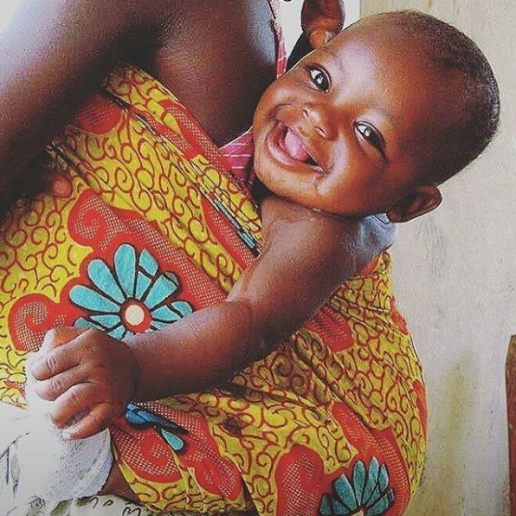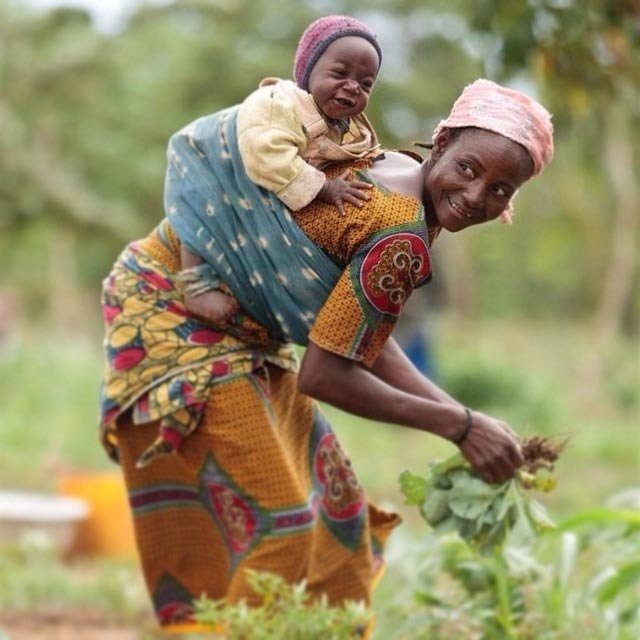As varied as the cultures are across Nigeria, so are the many taboos that abound in them. While these taboos may be sacred to the people they apply to, some of them will come off as ridiculous to anyone who is not familiar with them. The even more ridiculous thing is the grave consequences that comes with defaulting.
People hear some of these taboos and they discard them, because they believe that the “power of Christianity” crosses out the consequences associated with them. Let it be known now that this is not an attempt to affirm or dispute the authenticity of the many taboos revered in Nigeria. I’m just going to put my thoughts out there and hope that it helps someone decide what to believe.
Also, I don’t think one article is big enough to discuss all the taboos that are prevalent in Nigeria. The plan is to talk about one whose ‘victim’ I met recently.
Mrs. Temitope Adeniyi is 47 years old, and has been married twice without children. Her first husband was an Igbo man from Nnewi in Anambra state. He died on their wedding night in 2009. The incident left her devastated and forced her to be by herself for three years.
In 2013, she recovered and decided it was time to date again. She was young and doing well for herself. Her family encouraged her and she married Olaoluwa Thompson in December that year. They had a small wedding in Ondo state and flew to Lagos for their honeymoon.

With tears in her eyes, Mrs. Temitope recounts that she went to Lagos married and came back as a widow a week later. After their first session together as a couple, her husband was thrown into a fit. Minutes later he died.
And that was it! She was maimed. Even though she sensed something was wrong, she couldn’t place a finger on what. She started going to prayer houses and asking questions. Guess what? The ‘Men of God’ had answers for her. There was always a spiritual explanation for the problem and they made her pay for their help.
The next time she had intimate relations with a man, it was a one night thing. And he died an hour later. She said she really liked him and that they had found themselves in a ‘very compromising position’. She didn’t know he was going to die.
The one thing that the situation taught her, however, was that there was something truly wrong with her. “Now, I could tell for sure that no one was against my marriage as I had assumed, and that I didn’t need to be married to have my lovers die on top of me”, she said.
Mrs. Temitope resorted to traditional means in 2017. She called home and briefed her grandmother of her predicament. Her grandmother asked to come home so ‘she would take her to some places’. It was during her time at in the village that she found out that she was suffering from the consequence of a taboo.

Prior to this time, she didn’t know anything like that existed, and she wanted to know why like it plagued her still.
To that, 84-year-old Busola Olaiya had this to say:
“In Yoruba land, every clan has its own taboos apart from the communal ones. The sad thing is that your generation does not know about them and you don’t care”.
“You think that because you were not born in the village, none of it applies to you. Some of assume that moving out of the village cancels the efficacy of our traditions. I pity you”.
“Whatever the case is, I tell parents that there is a great need to pass the knowledge of these taboos on. If a stranger visits, they must be educated in our ways because ignorance is not an excuse”.
For Mrs. Temitope’ case, she fell from her mother’s back as a child.
Did that shock you?
Well, in Yoruba land, it is an abomination for a strapped baby to fall from its mother’s back. It is believed that if a male child falls from its mother’s back, he will always lose his wife at adulthood. For a female, she will always have a lover die atop her when she grows up. If a baby does fall from its mother’s back, the mother is expected to carry out some rituals to prevent evil from happening to the child when it grows.
Mrs. Temitope’s late mother knew, but her grandmother recounts that she didn’t have money to perform the rites at the time. It was really difficult for her to cater for her five children. Her husband went to work one morning and never came back. So, she had to raise all five children by herself. And when the incident with Temitope happened, she couldn’t afford to ‘appease the gods’.

Somewhere in my head, I had a really strong opinion about taboos. And for a long time, I felt like they are not as serious as we make them. My belief was that our ancestors reckoned that mere admonishments will not be strong enough to keep people at their best behaviours. So, instead of saying, “when you carry a baby on your back, ensure that the baby is properly secured”. They say, “if a baby strapped to your back falls, they will be very grave consequences“.
They make it a declaration and go ahead to ask for the backing of the ‘gods’. Remember the principle of giving a thought life and power by voicing it? That’s what happens when they make these declarations. And when they are enforced as rules, people begin to fear. It is the reverence that is accorded to these taboos that give it life. That was my assumption.
Has anything changed now? I think so. For every problem I have faced in the past few years, I intend to visit with my parents and ask some questions.
We are a deeply religious people in this country and everything we do stems from our beliefs. Taboos represent the main source of guiding principles that regulate and direct the behaviour of individuals. Because they are deeply rooted in our relationship with our ancestors and deities, the motivation for upholding these taboos are reinforced by sanctions from gods and ancestors.
Whether we know it or not, these taboos exist in our communities. People who breach them bring calamities and disasters on themselves and the whole community in some cases. Thus, it is important to pass them on. Because just like Mrs. Busola said, ignorance is not an excuse.


7 Comments
Good evening Sir/Ma my question is when a baby was about to fall on his or her mother back and the mother quickly get his or her hand but d legs touched the floor but the body not hope it has not turn to a taboo pls I want to know on time. Thanks.
Please I would let to ask what if the child fall when her mum is about to up her on her back but not strapped yet is that also a taboo ?
I would like to know too.
Please I would let to ask what if the child fall when her mum is about to up her on her back but not strapped yet is that also a taboo ?
Pls If such happens,what ritual process are u talking about,by going to Church or the Ritualist?
I really what to know, thanks.
Sir/ Ma , Please i will like to know, what if the baby is strapped on his mother back and the wrapper suddenly lose but before getting to the floor the baby was grab by his mom but when grabbing the baby mother fell down instead but the baby didnt reach the floor is their any consequence attached to it and is it a Taboo.. Thanks
Pls I will like to ask from what age and what if a child of 3years is trying to come down from the mothers back and fell with his or her side but the back is on the wall is it a taboo?